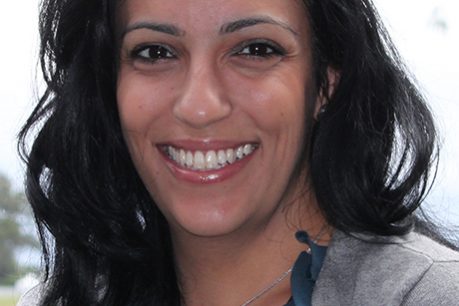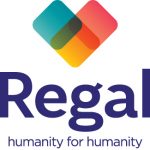Nursing care is pivotal to improving the quality of life for older Australians. Their expertise, critical thinking and empathy are essential to ensuring their complex needs are professionally treated and managed. Today, as part of our Nurses Where You Need Them NurseClick Series, we speak to registered nurse Michelle Touma MACN, People and Culture Manager at Regal Home Health, proud sponsor of our Nursing in the Community Week.
- Can you describe the services provided by Regal Home Health and your current role?
At Regal, we have Registered Nurses (RNs), Enrolled Nurses (ENs) and support workers who provide in-home care and support to older Australians. Our staff go into homes and provide services such as complex clinical care, chronic disease and medication management, social assistance and domestic support. We also have a long history of supporting Australia’s veterans.
I am currently Regal’s People and Culture Manager. In this role, I am responsible for recruiting a team of RNs and ENs who share our Regal values of humanity for humanity. I also provide support for our existing field staff to ensure they are able to provide excellent care for our clients.
- How does nursing care in the community improve the quality of life of older Australians?
It allows older Australians the opportunity to live safely at home, to have their independence and to make choices that suit their needs. A lot of older Australians want to be at home and stay at home for as long as they can and nursing care in the community contributes to older Australians having goals of choice, independence and control. It also helps to reduce the burden on the acute health care system by decreasing emergency visits and associated stresses which go with unplanned hospital admissions.
Nursing care in the community works towards what people can do at home rather than thinking about what they can’t do, increasing their positivity towards the ageing process.
- What nursing expertise and skills are required to work in this area?
At Regal, all nurses are community based and they visit people in their homes to provide care. This is a flip on the traditional model of nursing where people present in hospitals or a general practice. Our nurses are often working in uncontrolled environments, meaning they have to be very resourceful.
We use our assessment skills from the moment we park the car at the front door. Is the entry safe for the client? Are additional services required? Will they need help mowing their lawn? These are all questions going through our nurses’ minds before they even enter the door.
It is also important to have empathy and compassion when we are approaching our older population and have respect for how they live as we are in their home. We aren’t just there to treat a wound on a leg – we need to understand all the factors that compose a person. This means understanding their financial and legal situation, culture and beliefs. There is a lot which goes into understanding the person as a whole.
• From a clinical perspective, our nurses provide treatment such as:
• Simple and chronic wound care
• Surgical wound care such as skin grafts or diabetic ulcers
• Catheter and medical management
• Stoma care.
We are constantly using our assessment skills and continually reassessing our clients. There are lots of reasons why their health may decline and getting to know our clients well and build strong relationships ensures if changes occur they are quickly picked up and escalated appropriately.
- How can the general public access these services?
Our services can be accessed very easily by the general public. They can call the office for a chat to speak to a member of the care team. This allows them to discuss their needs and for us to provide information on the next steps of the process. There is also the referral option via our website where people can make direct contact with us.
- Why is it important to shine a spotlight on nursing care in the community?
People need to be aware that nursing care in the community exists as I feel its importance and value is not well-understood. It is important for people to know they do have the option to have excellent clinical care provided to them at home. People want to stay at home, and we need to be able to support them to do that and strong community nursing can facilitate that.
We need more investment and funding for critical care at home and that these pathways are built upon and strengthened in the future. Keeping people at home longer is a great solution to our health care crisis and it is important to highlight that clinical excellence in people’s home.
Nursing care also provides a safeguard for our support workers as they say they feel safer in a model alongside RN’s because they are able to escalate any concerns they may have about a client. An RN will then be out with them to assess the client and ensure the safest, best-practice care is provided at their home.
Community and primary nursing has been overlooked and missed for a long time and this is a great time to stand up and highlight the values that we have as nurses.
Nursing in the Community Week which runs from 14 – 20 September – raises awareness on how nurses can support you to stay safe at home, and their impact on the well-being of individuals and those in local communities.
Head to our website to register for a Nursing in the Community Week awareness pack and go in the draw to win a $500 Woolworths Gift Card.
We thank our official sponsor Regal Home Health for their support of Nursing in the Community Week.






